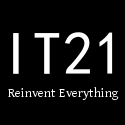Signs and symptoms of High blood pressure: What You Need to Know
Hypertension, also referred to as hypertension, is a typical condition that influences countless individuals worldwide. It happens when the force of blood against the walls of the arteries is continually too high, putting pressure on the cardiovascular system. If left neglected, high blood pressure can cause significant health problems such as heart problem, stroke, as well as kidney damage. Recognizing the symptoms of high blood pressure is crucial for early medical diagnosis and also reliable administration. In this short article, we will review the principal symptoms and signs of high blood pressure and supply valuable information on exactly how to recognize and address them.
Common Signs And Symptoms of Hypertension
In most cases, hypertension is a quiet condition, meaning it often presents no obvious signs and symptoms. This is why it is typically referred to as the “quiet killer” as it can go unnoticed for many years. Nevertheless, some people might experience particular indicators that could suggest the presence of hypertension. The following symptoms are often associated with hypertension:
1. Frustrations: Persistent headaches, especially in the early morning, might be an indication of high blood pressure. While migraines can have different causes, it is necessary to check your high blood pressure if you experience regular, serious frustrations.
2. Lightheadedness and also faintness: Really feeling dizzy or lightheaded, especially when standing up, can be an indication of high blood pressure. This symptom occurs as a result of the increased stress on capillary, influencing blood circulation to the mind.
3. Shortness of breath: Problem breathing or lack of breath can happen as the heart functions harder to pump blood against the elevated pressure in the arteries. If you find on your own coming to be breathless after very little physical effort, it is advised to seek advice from a medical care professional.
4. Chest discomfort: Upper body discomfort or pain can take place when high blood pressure results in heart problems such as angina or a cardiac arrest. It is essential not to neglect any type of upper body discomfort and look for immediate clinical focus.
- 5. Visual adjustments: Obscured vision or various other visual disturbances can occur in people with significantly high blood pressure. These adjustments might be temporary or resilient, as well as it is important to contact a doctor if you experience any type of aesthetic problems.
- 6. Tiredness: Really feeling exceedingly tired or exhausted even after enough rest can be an indication of hypertension. The raised stress on the cardio system can result in minimized blood circulation to body organs and muscle mass, triggering exhaustion.
- 7. Nosebleeds: While nosebleeds are reasonably common as well as generally safe, regular or severe nosebleeds might show hypertension. If you experience frequent nosebleeds, it is recommended to monitor your high blood pressure degrees.
When to Seek Clinical Interest
If you are experiencing any of the signs discussed over, it is necessary to consult a medical care professional. Nevertheless, it is essential to keep in mind that these symptoms can likewise be associated with other medical problems. A thorough medical assessment is necessary to figure out the underlying root cause of your signs and symptoms.
Along with the symptoms discussed, specific variables boost the threat of creating hypertension. These consist of a family history of the problem, excessive weight, a sedentary way of life, smoking cigarettes, excessive alcohol consumption, and a diet high in salt as well as processed foods. Normal high blood pressure checks, specifically for people with several threat elements, are important for very early discovery as well as efficient administration.
- Diagnosis: To diagnose hypertension, medical care professionals normally para qué sirve la pastilla biónica gauge high blood pressure making use of a sphygmomanometer, which consists of a blow up cuff and also a stress scale. Blood pressure analyses exist as 2 numbers: systolic stress over diastolic pressure. Regular blood pressure is around 120/80 mmHg, and also an analysis constantly above 130/80 mmHg might show hypertension.
- Therapy as well as Management: If identified with hypertension, healthcare providers might advise lifestyle changes and recommend medicines to aid reduced blood pressure. Lifestyle alterations frequently consist of normal workout, a balanced diet plan low in salt and also high in vegetables and fruits, weight management, anxiety reduction strategies, and also restricting alcohol intake.
- Monitoring as well as Follow-up: When diagnosed, it is essential to routinely keep an eye on high blood pressure degrees as well as stick to the proposed treatment plan. This may include routine check-ups, self-monitoring at residence with a blood pressure screen, and also regular lab tests to examine general health and wellness as well as the performance of the treatment.
Final thought
High blood pressure is a significant wellness problem that calls for proper interest, medical diagnosis, and monitoring. While it frequently offers no obvious signs and symptoms, recognizing the capacity indicators is vital for very early discovery. Headaches, wooziness, shortness of breath, chest pain, aesthetic adjustments, exhaustion, and also nosebleeds are some of the signs that can indicate the presence of hypertension. If you experience any one of these signs or have danger aspects for hypertension, it is advised to get in touch with a medical care specialist for an appropriate examination. With timely diagnosis as well as appropriate treatment, individuals with high blood pressure can successfully manage their high blood pressure as well as minimize the threat of linked complications.
Keep in mind, maintaining a healthy and balanced lifestyle, consisting of routine physical activity, a balanced diet plan, stress reduction, as well as minimal alcohol usage, plays a considerable duty in avoiding and also handling high blood pressure. Take control of your heart health and wellness today!
